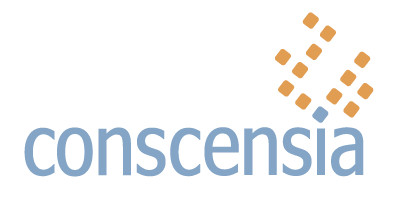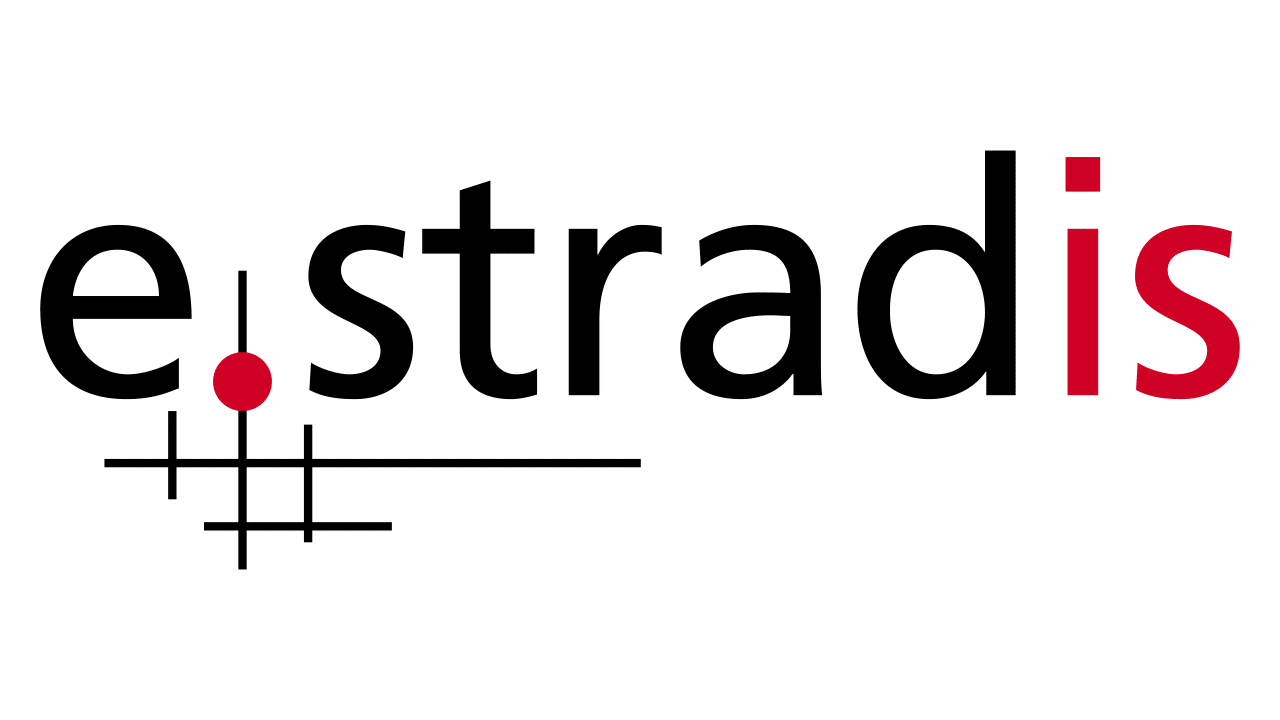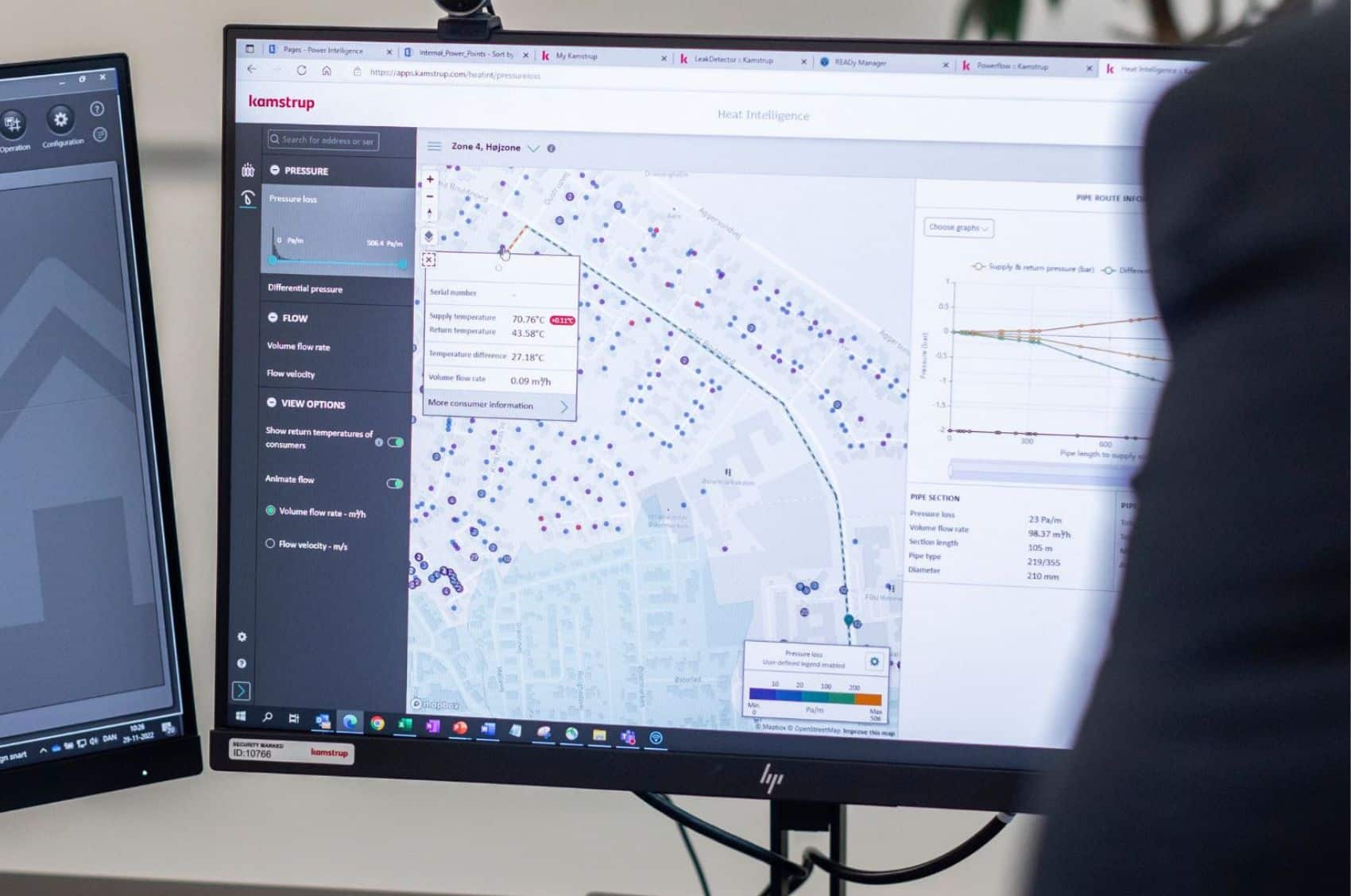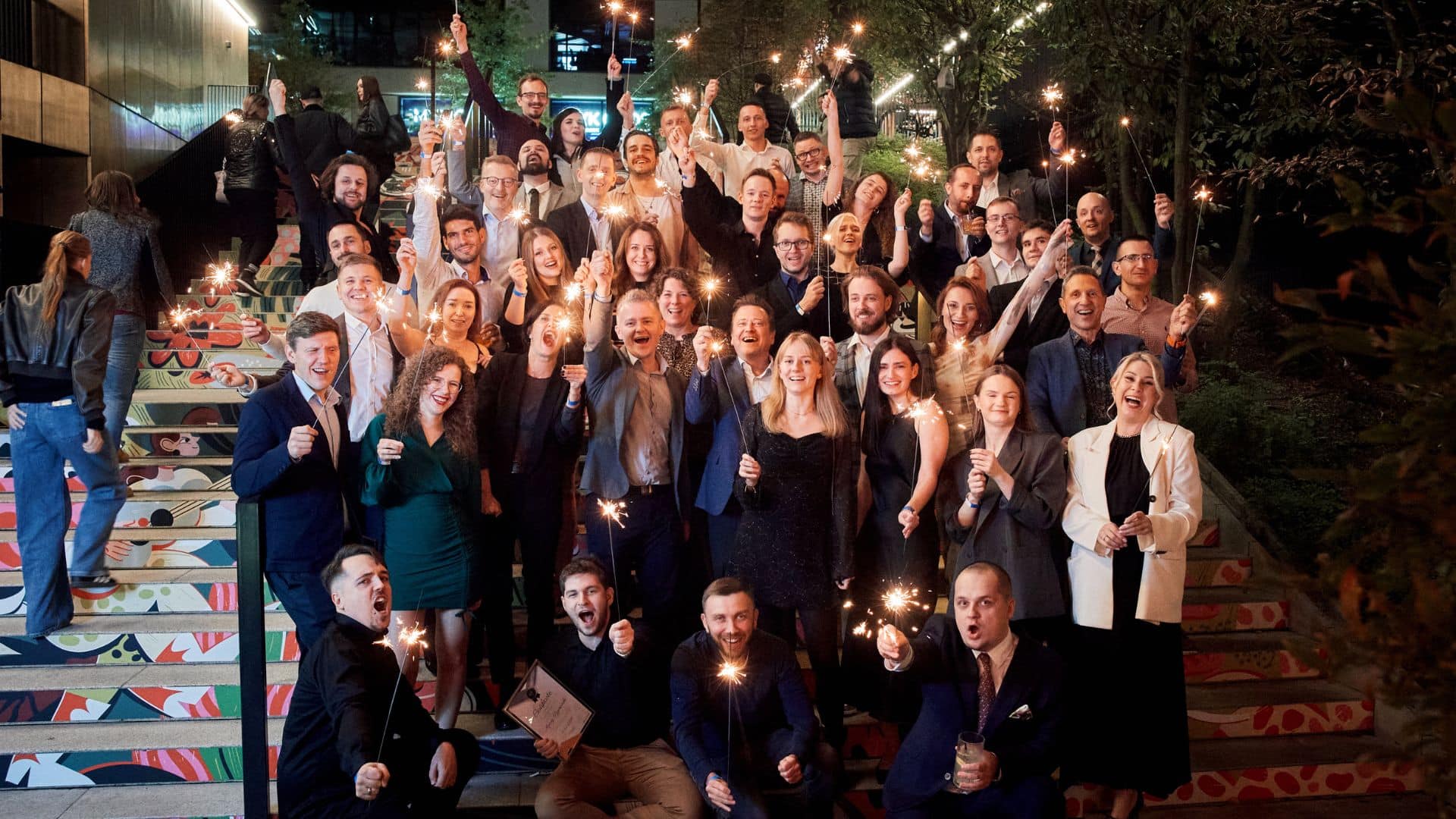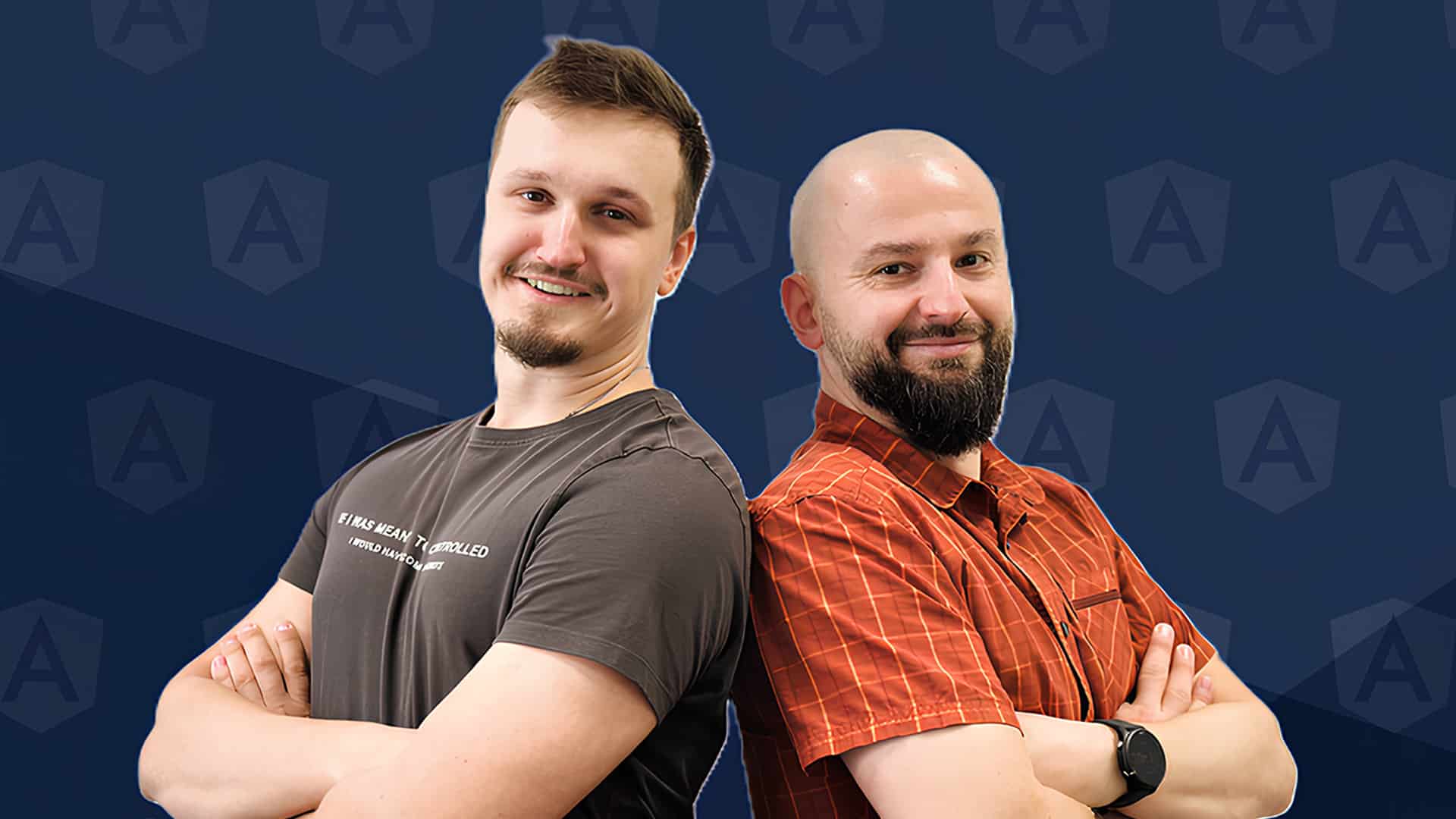e.stradis
The New Made in Germany
e.stradis
The New Made in Germany
The world famous, traditionally high quality demands that have always driven the growth of German industry are also a spring board for success in digital products. e.stradis shows how.
e.stradis: a remarkable company and a unique product
e.stradis is a privately owned company based in Augsburg. It was founded in 1997 with the mission of leveraging digitization to provide efficient software solutions in the area of finance to corporations based on the company motto: “We link finance and IT”.
rms, e.stradis’ main product, is a software platform to manage various aspects of credit risk. rms entered the market in 2001 and since then has been developed into a fully-fledged comprehensive risk management suite, covering all aspects of integrated credit risk management.
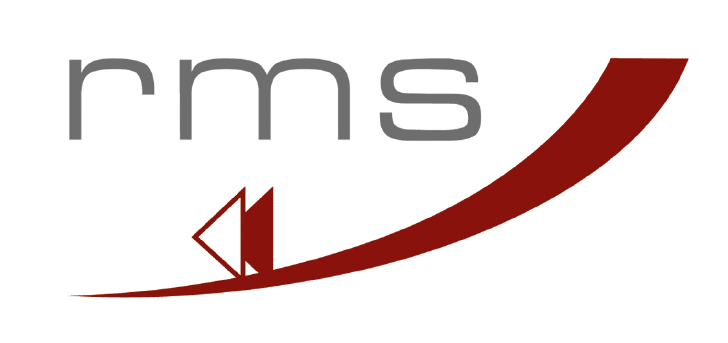
Since 2001 large banks, leasing companies and international corporations mainly in the energy sector have adopted rms to support their credit risk management process on a global scale.
The ups and downs of being a first mover
e.stradis software products generally follow a generic approach: the structures “behind” a specific problem are analyzed deeply and solutions created that solve such problems in a generic way. The result is a software suite that is highly configurable, giving the opportunity to clients to adapt the generic software modules to their specific business needs by configuring a great part of their individual requirements via an intuitive UI, directly into the system.
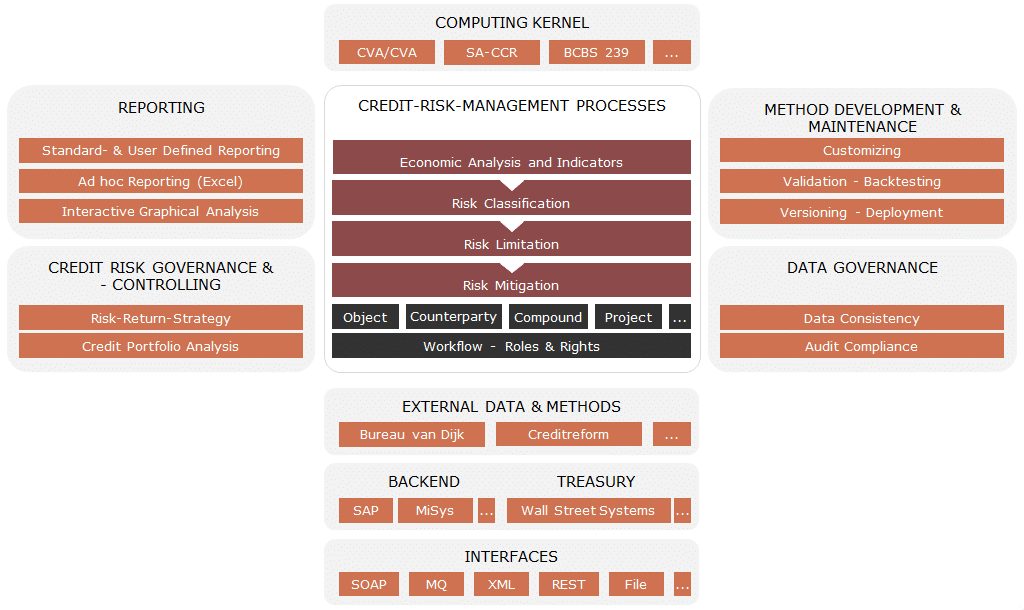
This is a very powerful USP, since in Banking and Finance in general and Risk Management in particular regulators on both the EU and German levels are very active, resulting in frequently changing regulatory requirements. Using the configuration options of the software, needs can be configured by clients based on their specific regulatory situation. rms is a web-based software that can be operated either on-premises on customers data centers or in the cloud. Technological progress forces the product always to be in synch with the latest developments in database and web technology as well as to security and operational requirements. Which presents a very real challenge; product development and maintenance against a background of skill shortage.
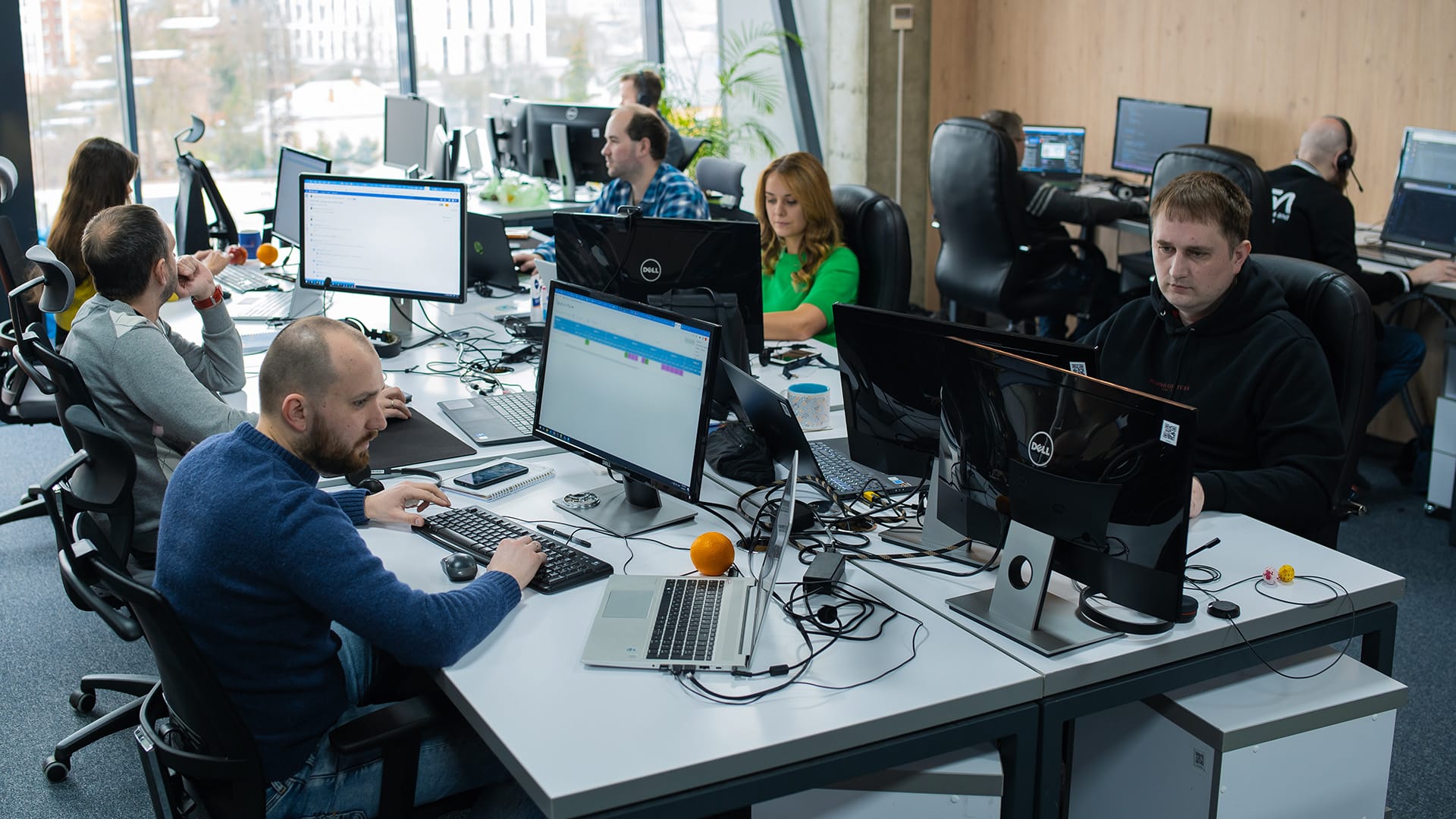
When nearshoring and product development meet
Creating and maintaining such complex systems requires a devoted team with great technical skill as well as profound knowledge in the areas of finance and risk management. While the core product team has been working at e.stradis almost from the beginning, a good mix of skills and experiences is important in creating best in class software for so many years. This is why young developers are integrated into teams via regular apprenticeships. Nonetheless, the shortage of skilled workers (Fachkräftemangel) that has hit Germany over the last few years has made it increasingly difficult to recruit skilled developers in Germany only. This is why e.stradis decided to search for a nearshoring partnership.
Selecting a nearshoring partner
Dr. Stefan Klein, one of the co-founders, explains how e.stradis went about the process.
“Our goal, when looking for a nearshoring partner, was straightforward: build a reliable long-term relationship.”
Since training the software developers in such a complex software product takes time and resources, we wanted to find a partner that provided a stable personnel environment we can rely on for several years without too many changes. A remote team, that is shifting personnel every other month is not suitable for us.
A second important criterion was, that our partner is a match in mindset, with a clear focus on quality and sustainability in the working relationship; this is what we demand from ourselves in respect of our clients and we expect the same level from our suppliers.
Integrating a high-performance remote team

We started with a very small team of “anchor” developers, that were introduced to the software, the development environment and our development processes. Knowledge was transferred in planned individual online sessions with our most experienced developers.
Having established the anchor-team we are now gradually expanding the nearshore team, with the intention that knowledge transfer takes place within the remote team itself and to create a high-performing remote team step-by-step.
The integration is and cooperation are accompanied by close communication with the Conscensia management team. This helps to clarify open questions and to resolve possible misunderstandings before they interfere with the daily development work.

Impact on Business Development:
The partnership with Conscensia enables us to develop and grow a team that builds and contains the knowledge required to develop rms. The developer pool of Conscensia allows us to scale the team to our needs. Shortly after the initial team was set up, we requested additional support and were able to quickly onboard resources for the product development. Sourcing via a stable partner that carries out the initial evaluation with regards to our requirements helps us to save cost intensive acquisition of developers via agencies, brokers etc.
Outlook - a strong nearshoring team
As pointed out above, we plan to expand the team gradually to form a strong nearshoring team that can reliably support our local team in the long-term. Currently the rms product is undergoing a major technical rework that requires specific technical knowledge and skills. Conscensia was able quickly to provide developers with exactly that required skill. This enables us to transform our product to the next technical level.
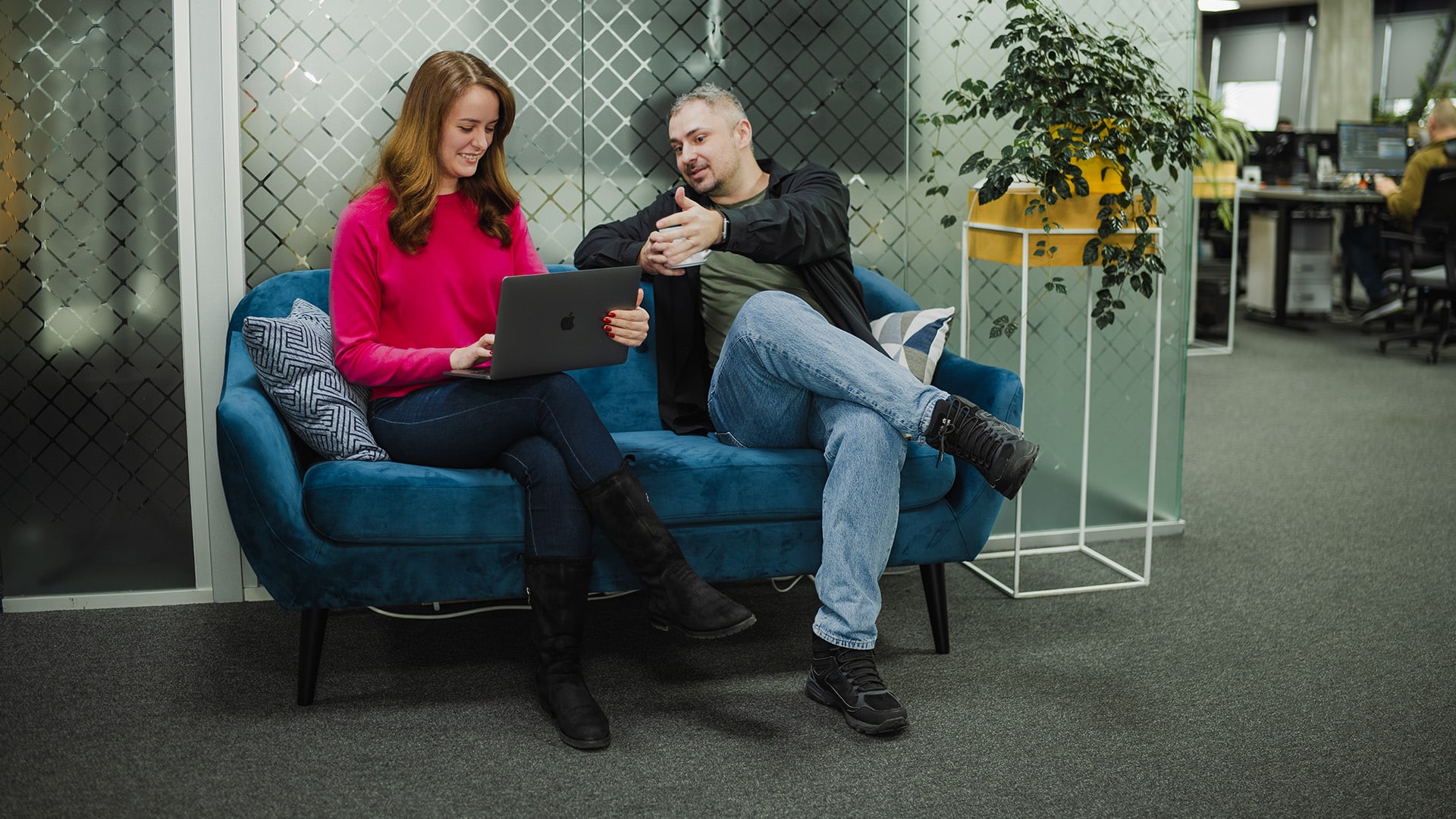
Customer Experience?
With the new release, planned for summer this year, we will further strengthen rms with a new technological basis, which is highly appreciated by our customers. The nearshoring team will help us drive the new release to our customers.
How our colleagues responded
“In the beginning some of our German developers were a little concerned about switching to English for meetings and online discussions, but after a few weeks of having meetings and writing mails in English it became normal and language was no concern anymore. So as a result, the nearshoring activity helped to transform the organization towards a more international one.
Business Risk/Continuity:
From a long term perspective, the nearshoring option helps us to setup a pool of skills, experience and development power in addition to our German teams. This can alleviate resource shortages that arise when German developers leave the team. Setting up a nearshoring team as we did with Conscensia gives us the opportunity to
a) become independent of the difficult market for software developers in Germany and
b) create a second pillar for our software development as a long-term perspective.
Technologies
JAVA
Spring
Tomcat
Extjs
Hibernate
About e.stradis
e.stradis is a privately owned company based in Augsburg. It was founded in 1997 with the mission of leveraging digitization to provide efficient software solutions in the area of finance to corporations based on our motto: “We link finance and IT”.

Interested in learning more about nearshoring?
More cases
Saxo
September 11, 2024
Saxo has a 100% full stack development team in Ukraine, which adds great value to the business. The team develops the e-commerce website both backend and frontend, streaming-backend, QA and app development in Android and iOS.
Kamstrup
May 25, 2024
A solid and stable nearshore development team is invaluable to Kamstrup. Their digital solutions are complex, so continuity and the competences of the developers guarantees high quality.
Unik System Design
January 18, 2023
Unik System Design expanded their development capacities with a team of developers in Warsaw. Unik System Design is impressed with the new Polish team delivering results from day one.
Nearshore news
Celebrating 5 years of Conscensia in Warsaw
November 13, 2024
Angular meetup at Conscensia Warsaw Hub
October 18, 2024
